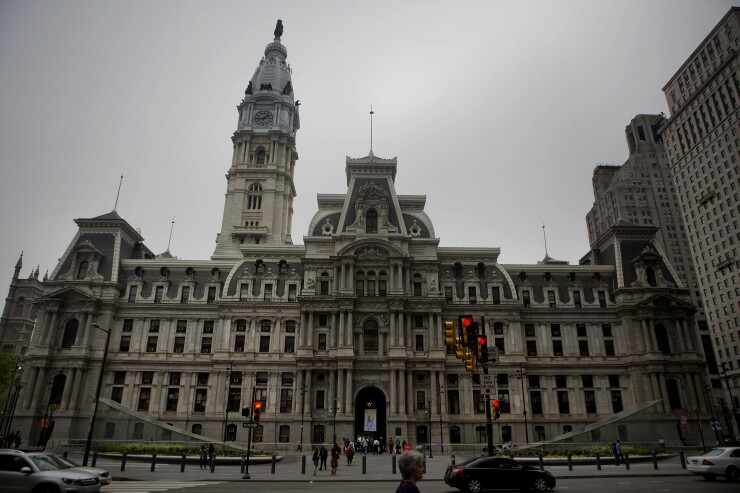Buoyed by strong investor demand, Philadelphia reported millions in savings from a $293.4 million general obligation bond sale.
The city announced that interest rates for the Aug. 1 borrowing were around 0.63% lower than Philadelphia’s last GO offering, resulting in roughly $15.9 million in savings. Total orders from retail and institutional investors on the 2019B bonds exceeded $3.1 billion, more than ten times the amount of bonds issued, according to city officials, who credited fiscal progress noted in recent credit rating reports.

“The strong demand for City’s bonds is an indicator that investors have a long-term positive outlook for Philadelphia,” City Treasurer Christian Dunbar said in a statement. "This directly translates into cost savings for taxpayers."
Incoming supply in the municipal primary is nowhere near enough to meet investors' demand,
The bonds were sold by an underwriting syndicate led by Bank of America Merrill Lynch, with Ramirez & Co. as co-senior manager. Borrowing yields represented a spread to Refinitiv’s Municipal Market Data index of 0.46% for the 20-year maturity marking a 0.20% improvement from Philadelphia’s last new money bond sale held in November 2018, according to city officials. The overall interest cost was 2.82% for the bond issuance, which has a 20-year final maturity.
Ahead of the sale, Fitch Ratings maintained its positive rating outlook on Philadelphia while Moody’s Investors Service and S&P Global Ratings retained stable outlooks. The city is rated A-minus by Fitch, A by S&P and A2 by Moody’s. All three rating agencies credited Philadelphia with establishing strong financial management through improved reserve levels and for making headway on an underfunded pension system.
The Aug. 1 transaction marked the first Philadelphia borrowing spearheaded by Dunbar, who replaced Rasheia R. Johnson as city treasurer after she
Proceeds from the borrowing will finance certain projects in Philadelphia’s capital budget. The city has around $3.65 billion of tax-supported debt outstanding, according to Moody’s.





